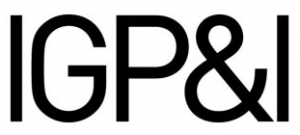Nigeria's national oil company, Nigerian National Petroleum Corporation (NNPC), has banned 113 oil tankers from its ports on the orders of recently elected president Muhammadu Buhari.

Nigeria ban 113 named crude oil tankers
On 15 July 2015, a letter was issued by the NNPC referring to a directive issued by the President of Nigeria prohibiting 113 identified tankers from engaging in crude oil/gas loading activities at Nigerian terminals. The prohibition also bars the identified tankers from movements within Nigerian territorial waters.
The NNPC letter has caused concern and confusion as it does not explain the reason for the ban and does not identify how an affected party can apply to have the ban lifted. There is also some uncertainty over the tankers identified in the list attached to the letter. Some are listed twice, and some of the tanker names do not match the respective IMO numbers. It is also alleged that some of the tankers have not called at Nigeria for several years and in some cases have never been there.
Information is currently scarce. It is not known what rules and regulations the owners of the tankers on the list are alleged to have breached and whether the ban can be justified. It has been reported that the named tankers have been banned because they experienced differences between load port and discharge port figures for cargo and free water. There has also been a suggestion that the ban may be due to a failure to provide the Nigerian authorities with official outturn figures for cargo loaded in Nigeria. The mechanism for tankers to provide such information is not clear. We have seen a reference to the introduction by the Nigerian Department of Petroleum Resources of outturn verification exercises for cargos loaded at certain ports, failing which sanctions may be imposed on the vessels. However, the details of the requirements are unclear and tanker owners may wish to seek clarification from local agents if they are requested to take part in such exercises. It is believed that the tanker list is not final and that more tankers may be added.
We recommend Members and clients to take the letter seriously and seek advice from their Defence cover provider if the ban may affect a tanker. Particular care should be taken when:
A banned tanker is currently at or has been instructed to call at a Nigerian port.
A banned tanker has recently loaded oil in Nigeria.
A tanker has recently been asked to provide official outturn figures for cargo loaded in Nigeria.
Although NNPC’s letter refers to Nigerian Territorial waters, we suggest banned tankers should also avoid entering the Nigerian Exclusive Economic Zone.
All tankers loading oil in Nigeria are advised to be extra vigilant in their dealings with and reporting to the local authorities.
No general legal advice can be provided as yet as the position is too uncertain. It is crucial to evaluate the individual terms of a charterparty/contract of carriage. Legal issues that may arise include:
Off-hire for delays caused by the ban.
Frustration of contract.
Legitimacy of voyage instructions.
Legal safety of Nigerian ports.
Responsibility as between owners and charterers for providing official outturn figures.
We are aware of charterparty clauses being negotiated to deal with some of the legal issues identified above. All clauses need to be considered carefully in view of the uncertain position and the way in which outturn figures are to be reported.
Additional details are available in the HFW Briefing published on 23 July 2015.
INTERTANKO has protested to the NNPC and requested urgent clarification and Gard’s correspondents are also investigating. Further information will be provided when available. Members and clients should also seek guidance from local agents.
Please direct any questions to your usual Defence cover point of contact.


